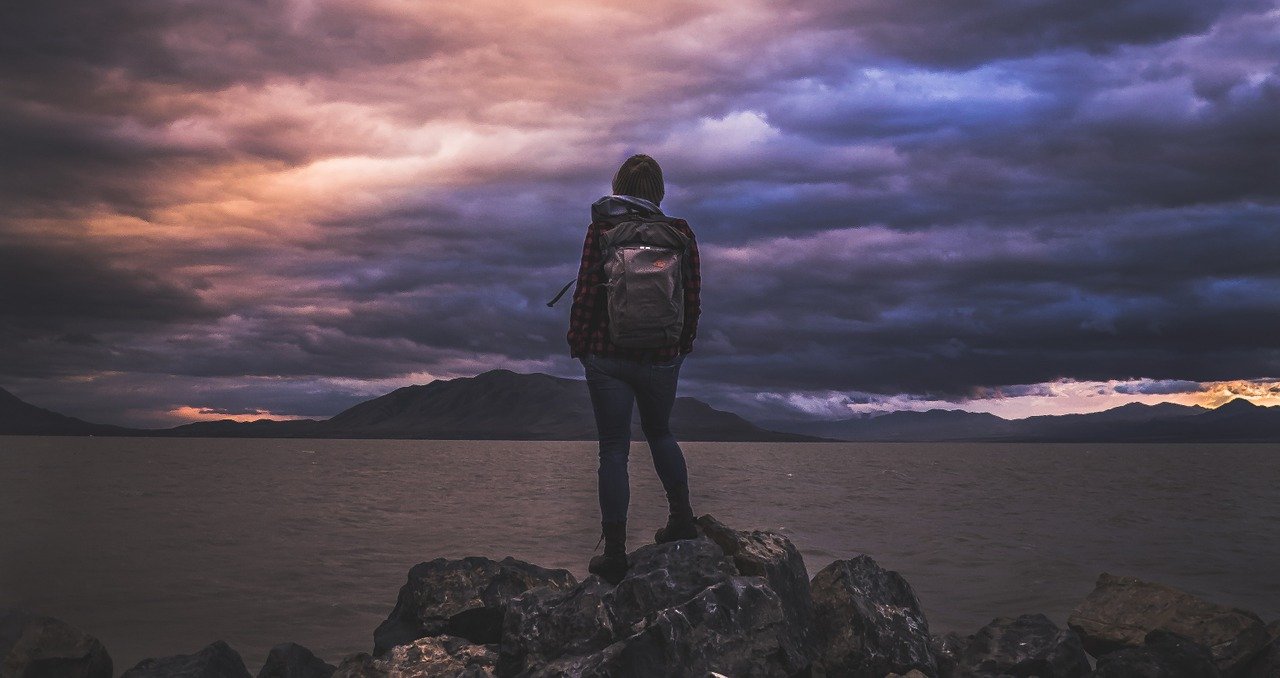
Backpacking is a great way to see the world — it carries not only a sense of adventure, but accomplishment. It’s easy to find a hotel and go out to dinner, but backpacking requires dedication, physical fitness, proper planning, and even some gumption. For a successful backpack trip, you need to find the proper balance of making sure you’ve packed everything you’ll need — without packing anything you don’t need. Every ounce counts, and the longer the journey is, the more the weight matters because it’s much easier to carry 45 pounds for three miles than for twenty. Here are some essentials to help you pack for your next adventure.
THINK AHEAD
Keep in mind that whether you’re making your way across Europe or through the Tetons, you’ll have limited resources while backpacking. Don’t plan on having access to a charger like you normally do at home, so limit your reliance on electronics. Wear a watch you won’t have to charge — Luminox watches won’t require a light after dark. Carry a physical map and compass. Of course, brush up on how to use a map and compass; don’t think you will naturally figure it out when it’s time to need them. In fact, orienteering is an entire hobby of its own, and you may find that aside from its practical uses, it may be something you enjoy.
Plan for the unexpected by having the proper emergency supplies on hand. It’s easy to get carried away while trying to stay prepared but here are the essentials you should have with you: matches or a reliable lighter for starting fires, a proper first aid kit, any medications you may need, and a space blanket. If you’ve never used a space blanket, they are surprisingly warm and don’t take up much space. On particularly cold nights, use your space blanket inside your sleeping bag and you’ll be plenty warm.
GET THE RIGHT SHOES
Obviously, you’ll be walking a lot if you’re backpacking. Find shoes that provide proper arch and ankle support, and make sure they’re comfortable for hours at a time. If the shoes aren’t waterproofed already, find a waterproofing spray and do it yourself — you’ll never regret having waterproof shoes, because wet feet and miles of walking do not pair well.
Break your shoes in well ahead of time to avoid blisters. You can do this by going on walks to make sure you can hit the mileage you’ll traveling; the best shoes in the world are no good if you haven’t properly trained.
PLAN YOUR MEALS
Like electricity, don’t plan on having access to many food options while you’re out — you can only get so full on berries. Freeze-dried food is one of the best options for backpackers because it’s lightweight and simple to prepare: you often just add hot water. Don’t pack anything heavy, such as canned foods. Aside from the additional weight, you have to keep in mind the garbage you’ll have to carry with you until you find somewhere to throw it away.
Don’t pack a lot of water with you if you can avoid it. Water is heavy. If you can, opt for a way to filter your water. Some filters are more complex than others, but you can even find water bottles with built-in filters, and few things are as refreshing as filling one of those up and drinking water straight from a freezing stream in the mountains. Do not drink unfiltered water, regardless of how clear and clean it looks. Giardiasis is incredibly easy to get from drinking unfiltered water, and it will ruin any trip.
DRESS FOR SUCCESS
It’s easy to overpack clothing in the spirit of preparedness. Be careful to pack the appropriate amount of clothes for the duration of your trip. Remember that backpacking isn’t the cleanest way to live, so be okay with not wearing fresh clothes every single day. Make sure you have backups in case something gets wet or somehow ruined, but do make sure you pack plenty of socks so you can keep those fresh.
Check the weather and plan ahead — don’t bring a winter parka if it’s not absolutely necessary.
Backpacking trips can be intimidating to pack for — cut out anything you won’t need, and you can find creative ways to reduce weight, such as removing commercial packaging from your food. If you keep it simple and make sure you have enough to get you through, you can be adequately prepared without any unnecessary burdens.
